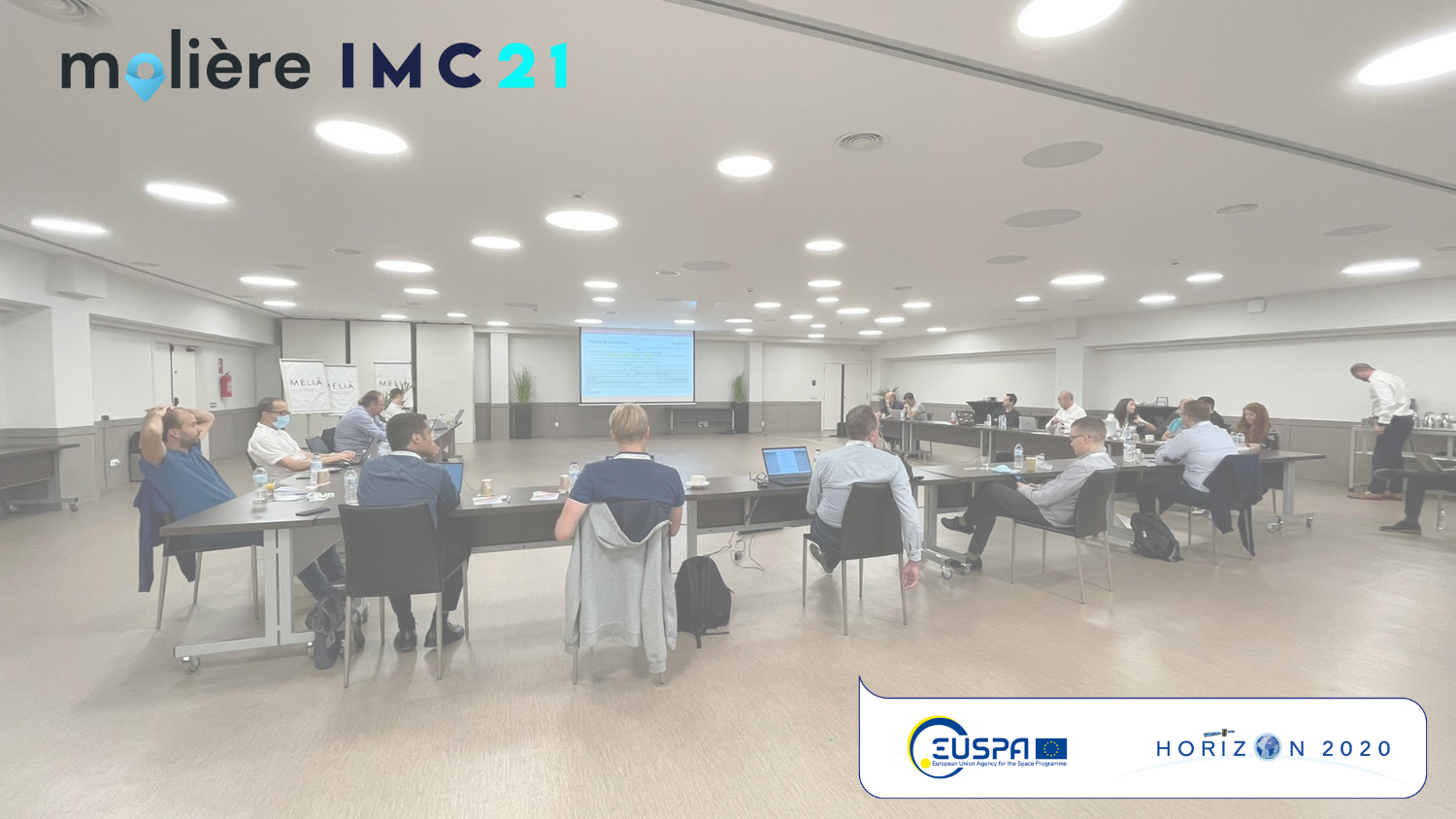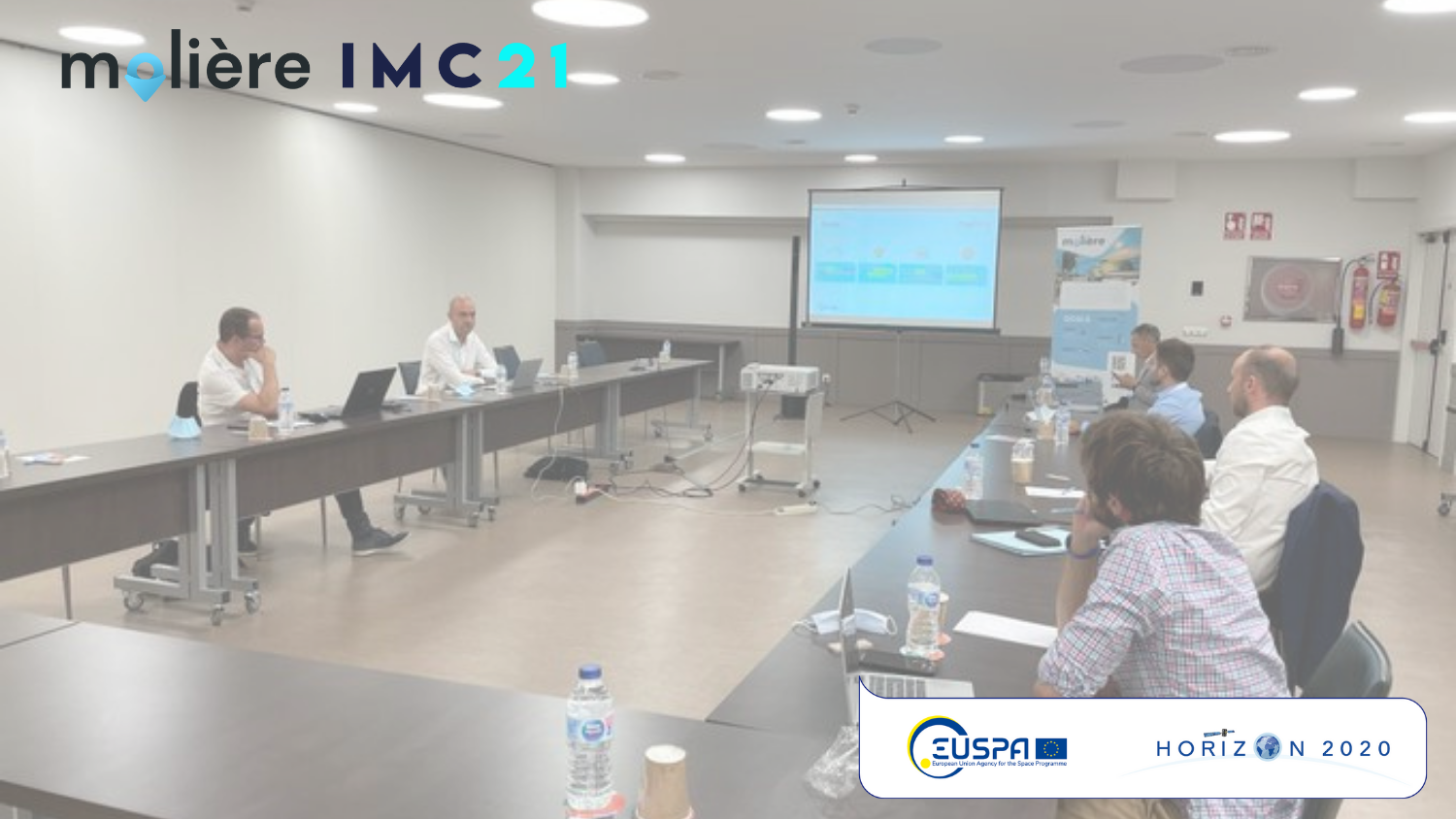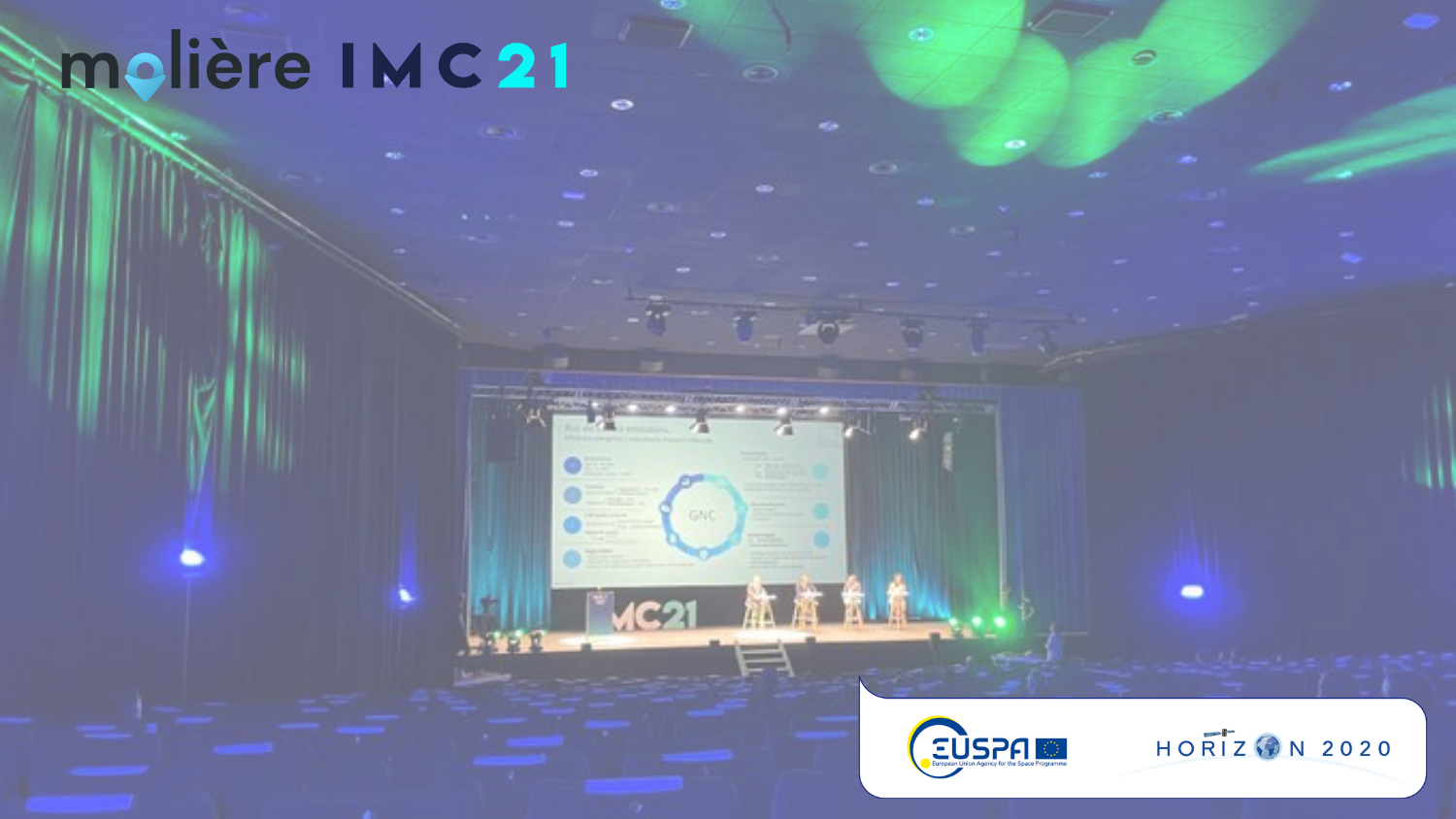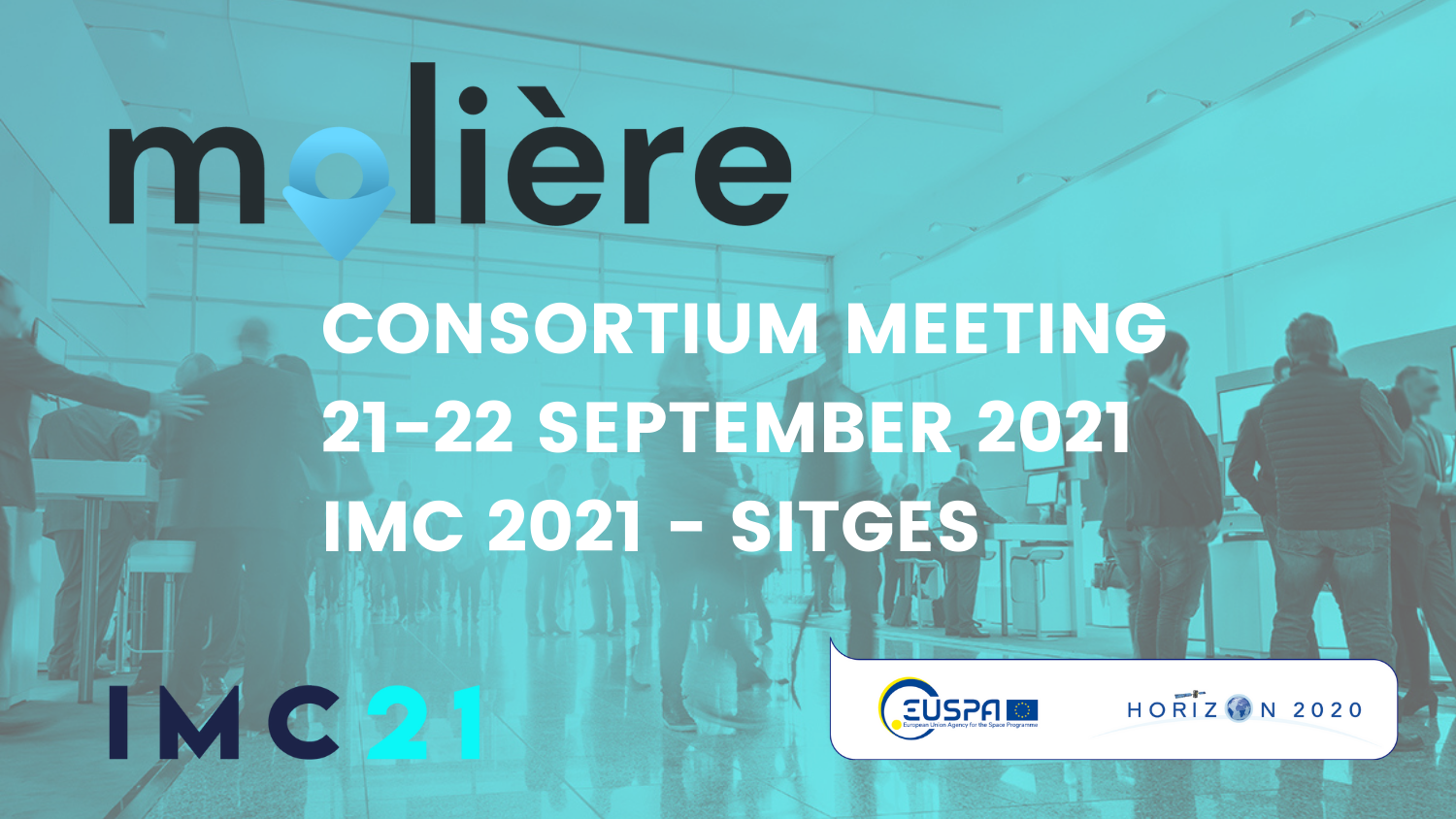IMC 2021 is a meeting point to understand how the post-COVID mobility environment will be and to take advantage of innovations being developed towards a new future mobility scenario.
The Molière Project Consortium meeting took place between the 21st and 22nd of September as a parallel event during the well-known International Mobility Congress (IMC) held in Sitges. This mid-term meeting includes action plan updates and complements the initial action plan by strengthening existing actions and introducing new measures in response to evolving priorities and challenges.
“Our vision is to promote a more sustainable, affordable, equitable, and accessible mobility”, Josep Laborda (CEO of Factual and Coordinator of the project), said during the Molière project consortium meeting. He added that it is important to emphasize these adjectives when referring to Moliere in order to motivate a significant mobility change.


During the first working day, the project partners presented their specific contributions and working packages status, including a detailed overview and project development within the current deadlines. In the second part of the day, the partners were invited to join a workshop with the EU project nuMIDAS, also present at the IMC 2021 event and having a consortium meeting. The main objective of this workshop was to brainstorm new ideas and find synergies between these two projects. The matching point between Molière and nuMIDAS is the use of the GALILEO system to provide positioning accuracy and reliability in urban environments, together with new security features, such as authentication, enabling a range of new applications and services, particularly in the field of urban mobility and public transport, that will drive economic growth in Europe and beyond.
One of the main topics during the 2nd meeting day was the demo of the Molière Platform, focusing on Data Management and APIs and different scenarios. A highlight of this day was Boyd Cohen (CEO of Iomob) performing a demo of the functionalities of the platform, allowing us to take a closer look into the project’s Mobility Data Marketplace. Thanks to this app, users will be able to visualize the mobility services available on the map, with relevant information about each transport mode and service area. One of the main missions for the Consortium is to make the Molière platform more efficient, more effective, considering all stakeholders requirements, different scenarios and user segments.

The IMC 2021 Congress, which served as context for the consortium meeting, was a meeting point to understand what the post-COVID environment will be like affecting mobility, to achieve the Sustainable Development Objectives, and to take advantage of all the innovation potential towards a new future mobility model. During 2 days, 11 sessions and more than 70 local and international speakers, visitors and experts could improve their knowledge face to face and online. The event agenda included a presentation of innovation projects and workshops, giving support to emerging start-ups which presented their projects. As part of this agenda was the Molière Project Consortium Meeting, where the project partners presented the project development on the first months of the project, status updates, challenges and lessons learned.
Molière is funded within the EU Horizon 2020 programme as a 24 months project, with an overall funding of 1,9M received funding from the European Union Agency for the Space Programme (EUSPA) under grant agreement No 101004275.
BACKGROUND
About Molière
Molière has been awarded 1,9M € in funding by the European Union Agency for the Space Programme (EUSPA). The goal is to promote more sustainable, affordable, equitable, and accessible mobility, where micromobility and shared mobility services increasingly complement public transport. The Molière consortium works to demonstrate a diverse set of concrete, highly relevant mobility scenarios and use cases where geo-location data is key, addressing the needs of cities, public transport authorities, mobility service providers, and end-users. More about the Molière project – http://moliere-project.eu
About EUSPA
The mission of the European Union Agency for the Space Programme (EUSPA) is to be the user-oriented operational Agency of the EU Space Programme, contributing to sustainable growth, security and safety of the European Union. Its goal is to communicate, promote, and develop the market for data, information and services offered by Galileo, EGNOS, Copernicus and GOVSATCOM. Galileo provides improved positioning and timing information with significant positive implications for many European services and users. Thanks to the multi-constellation of receivers that Galileo adds to, users can now know their exact position with greater precision. Galileo’s dual-frequency capability offers significant advantages in terms of achievable accuracy, but also in terms of improved resistance to jamming. The products that people use every day, from the GPS in their car to a mobile phone, benefit from the increased accuracy that Galileo provides. Galileo helps make Europe’s roads and railways safer and more efficient. Galileo boosts European innovation, contributing to the creation of many new products and services, creating jobs, and allowing Europe to own a greater share of the global market for added value services. For more information visit https://www.euspa.europa.eu/



